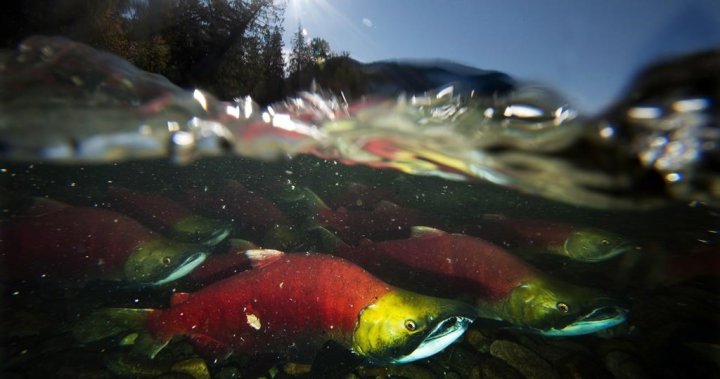
First Nations in B.C. seek salmon return to Columbia Basin in new treaty with U.S
Global News
Representatives from the Ktunaxa and Syilx Okanagan nations say they continue to bring up salmon restoration in negotiations for a modern Columbia River Treaty.
First Nations groups on the Canadian side of the Columbia River Basin are adamant that salmon runs that have long been blocked by dams in the United States must be restored, potentially in a renewed river treaty between the two countries.
But experts say possible solutions, such as “salmon cannons” that suck fish through a pipe and shoot them out upstream and over obstacles, are all costly and potentially limited in their effectiveness.
Representatives from the Ktunaxa and Syilx Okanagan nations say they continue to bring up salmon restoration in negotiations for a modern Columbia River Treaty and will not stop until a solution can be reached within or outside a new agreement.
The U.S.-Canada treaty regulates the cross-border Columbia River to prevent flooding and generate hydro power. A key component of the 62-year-old treaty is set to expire in September 2024, lending urgency to the ongoing talks.
“I think what we are doing in the fight to bring salmon back is vital to us moving forward,” said Lower Similkameen Indian Band Chief Keith Crow, who is a member on the Syilx Okanagan Nation’s Chiefs Executive Council and the Nation’s lead in the Columbia River Treaty talks.
“And we’re not going to back down, either,” he said.
The U.S. Bureau of Reclamation says much of the migratory salmon run in the Upper Columbia, both in Canada and the U.S., ended with the completion of the Grand Coulee Dam in Washington state in 1942.
While the Grand Coulee Dam isn’t among four dams built in accordance with the 1961 Columbia River Treaty, First Nations leaders say the talks offer a rare opportunity for them to directly engage American officials about restoring Pacific salmon to the Upper Columbia.
